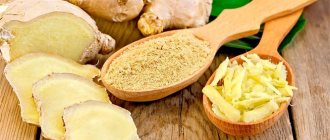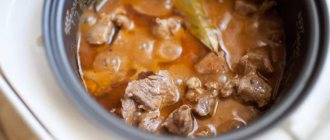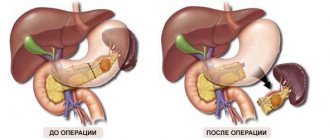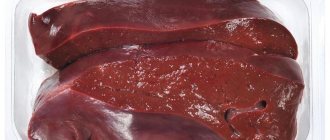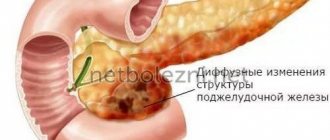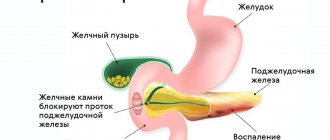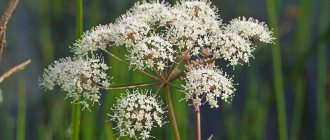Pancreatitis is a disease that occurs as a result of disruption of the pancreas, whose duct is blocked by stones, a cyst or a neoplasm. As a result, the outflow of digestive enzymes entering the intestines is disrupted. The disease occurs due to improper diet or unbalanced nutrition. Treatment and prevention of pancreatitis are necessary; the disease leads to serious disorders of the digestive system.
To treat pancreatitis and maintain normal functioning of the pancreas, a variety of medications and traditional medicine are used. In particular, various herbal infusions, infusions and teas. Ginger occupies a significant place in the list of herbal medicines.
The effect of ginger on the digestive system: benefits and harms
With dosed consumption of ginger root and proper preparation of healing compositions, you have every chance to improve your condition and get rid of many problems of the pancreas, the stomach itself and the neighboring organs of the digestive system.
- The beneficial properties of the plant in this case are expressed in:
- antioxidant, antimicrobial and anti-inflammatory effects, which is very valuable for food poisoning and other stomach disorders associated with intoxication of the body;
- improving metabolic processes in the body;
- stimulation of the gastrointestinal tract due to the production of enzymes necessary for digesting food;
- increasing regenerative processes in liver cells;
- decreased appetite, which is sometimes useful for a tendency to overeat and problems with excess weight.
As for the possible negative effect on the digestive system, harm is possible only if the plant is abused or if there are diseases of the stomach or adjacent organs, especially in the acute phase. The active substances of ginger will further irritate the already affected areas of the mucous membrane, only aggravating the pain, and sometimes additionally causing nausea and vomiting. Such manifestations are also typical for individual intolerance to individual components, and if a person is prone to allergic manifestations, then the burning root can lead to skin rashes.
Methods of using ginger and recipes for inflammation of the pancreas
Ginger root can be consumed both dry and fresh, but it is the latter option that is best suited for preparing drinks, first and second courses. For inflammation of the pancreas, the current method of treatment would be tea from the plant and compresses based on a decoction from it; True, even in this case it is worth taking into account the stage of development of the disease and your own well-being.
Did you know? Any ginger-based drink is a wonderful sedative that perfectly reduces anxiety and improves mood.
Ginger tea
Ginger tea for pancreatitis is the gentlest option for using the plant , however, in the acute period, even it can cause complications of the condition. In case of persistent remission of the disease, the drink helps reduce inflammation, relieve swelling from soft tissues and improve metabolic processes, and to increase the taste properties of the composition, you can add a few drops of lemon juice and a little honey to it.
You can prepare ginger tea during the period of remission of pancreatitis (characterized by the absence of pain) using the following recipe:
- Pour in 1 tsp. fresh (grated) or dried plant root with a glass of boiling water, place the mixture on the fire and, tightly closing the container with a lid, simmer over low heat for 10 minutes.
- To complete the process, remove the saucepan from the heat and leave at room temperature for another 25 minutes until the tea cools completely.
Important! Ready-made drinks should only be taken warm, since any hot drinks are prohibited for pancreatitis (all of them increase the secretion of digestive juices, which is unacceptable in this case).
It is better to drink ginger tea in small portions, 50-100 ml at a time, about 2-3 times a day, but if such use causes nausea, pain or any other disturbances in the usual state of health, it is better to discontinue the use of the drink.
Ginger decoction compress
This treatment option for pancreatitis is more gentle than the previous one, so it can be used in cases where the internal use of ginger is accompanied by unwanted side effects.
Prepare a compress according to the following action plan:
- Pour into a saucepan and boil two liters of water over low heat.
- Peel 200 g of ginger root and grate the pulp on a fine grater.
- Transfer the resulting slurry to a gauze bag and, placing it in boiling water, leave to cook for half an hour.
- After the specified time, the ginger can be taken out, and the remaining broth can be used to wet towels, which are applied to the sore spot (above the pancreas) in the form of compresses.
Keep the wet bandage on the skin for 10 minutes, then take a short break for the same time and repeat the procedure again.
Ginger and pepper compress
A compress with pepper is a good alternative to the previous one, but it is better to do it at night. The preparation method is somewhat more complicated and requires the presence of more ingredients.
Important! Do not apply the ginger-pepper compress directly to bare skin. Red pepper is very hot and with prolonged contact can cause not only redness of the skin, but also a real burn.
The sequence of all actions in this case will be as follows:
- Take a small clay pot (or a mortar made of other material) and mix in it 2 teaspoons of chopped ginger, 0.5 teaspoon of hot red pepper and 1 teaspoon of turmeric.
- Crush all the ingredients with a pestle, trying to extract as much of the essential oils as possible.
- Dilute the resulting mixture with mustard or sesame oil to a thick sour cream, and then apply the composition to a thick cotton cloth and apply to the sore spot, placing a thin cloth napkin on it in advance.
- It is advisable to additionally secure the entire compress with bandages so that it does not move or fall off. After a few hours, the bandage and ointment can be removed.
Harm of ginger
Ginger is a hot spice; if used incorrectly or uncontrolled, it is easy to irritate or burn the gastric mucosa.
Ginger contains many essential oils and gingerol, which activate the production of gastric secretions. Therefore, official medicine categorically does not recommend ginger for pancreatitis! Other spices and seasonings that have irritating and stimulating properties are excluded from the diet of patients suffering from acute and chronic forms of pancreatitis.
Using ginger even in small quantities, regardless of the method of preparation: fresh, pickled or dried, can cause a severe attack with acute pain. The situation should be taken very seriously; as a result, necrosis of pancreatic tissue and nearby organs is provoked. If, during the treatment of pancreatitis, a stable remission has occurred and attacks have not occurred for a long time, you should not use ginger.
All kinds of recipes promising treatment of the gastrointestinal tract based on the use of ginger have their origins in oriental medicine. Ancient science prescribes tiny doses of the product - exclusively in the form of medicine. Eating ginger for pancreatitis is strictly contraindicated.
Ginger tea causes less irritation of the mucous membranes, and this drink can be consumed if you have pancreatitis.
Contraindications for use in diseases of the pancreas
Any disturbances in the activity of the pancreas deserve increased attention, with timely and adequate treatment. Of course, in this case, self-medication is out of the question, so if you have some diseases, you should hold off on using ginger root.
- First of all, we are talking about such disorders:
- inflammation of the walls of the organ at the acute stage (acute pancreatitis);
- the appearance of severe pain in the pancreas and gall bladder;
- the appearance of any discomfort in the stomach;
- peptic ulcer of any type;
- heartburn;
- internal bleeding in the specified organ.
In addition, it is possible that ginger root may have a negative effect on the stomach - with gastritis (with high acidity), diverticulitis, colitis, and acute cholecystitis.
Is it possible to use ginger root for cholecystitis?
As in many other cases, the possibility of using ginger root for cholecystitis depends on the stage of the disease: chronic or acute. Of course, in the latter case, the burning plant will negatively affect the inflamed organ, which can cause it to hurt more.
The chronic form is often characterized by a long period of remission, during which no negative manifestations in the functioning of the gallbladder are observed, which means that moderate consumption of ginger root tea will not cause any negative consequences.
Rules, conditions and norms of use
When consuming even a minimal amount of ginger, it will activate secretory processes in the stomach, pancreas, and gall bladder, which, in the presence of any diseases (in particular cholecystitis), contributes to the appearance of very unpleasant pain or heartburn. At the remission stage, the plant can be used, but only in extremely small doses and after appropriate heat treatment.
Did you know? Ginger root perfectly eliminates bad breath, and to freshen your breath throughout the day, just chew a small piece of this product immediately after eating.
Short-term treatment with high temperatures helps reduce the pungency of ginger root, so if drinks from a fresh plant are contraindicated for you, you can add it to baked goods or combine it with any warming drinks. You should not use ginger on a regular basis, but with stable remission it can be used no more than once a week.
The following can be considered popular recipes for preparing medicinal drinks:
- Option 1. Prepare a mixture of lemon balm, centaury, wormwood, barberry bark and nut leaves (10 g of each spice), and then pour a glass of boiling ginger water over the mixed ingredients. The finished infusion is drunk 3 glasses a day, between main meals.
- Option 2. Mix dried celandine, walnut leaves and chicory root in equal proportions (20 g each), then pour 1 full tablespoon of the mixture with a glass of boiled ginger water. After infusing the mixture for half an hour, all that remains is to strain it and drink 1 glass twice a day: morning and evening.
Using pickled ginger root to treat cholecystitis is one of the worst decisions, however, like any other way of consuming the plant in its pure form.
Contraindications for use in liver diseases
Useful in most cases, ginger can become very harmful in case of liver diseases, especially when it comes to chronic hepatitis and cirrhosis. Since any of these ailments is characterized by increased irritability of organ cells, increased secretory activity can aggravate their condition, complicating the overall situation.
Read how to properly use ginger root for gastritis and stomach ulcers.
This result is also possible in the presence of stones in the area of the biliary tract, which, if moved from place, can block the excretory ducts and cause intoxication of the body, not to mention increasing the likelihood of surgical removal of the stones.
Simply put, the benefits of ginger root can be revealed only if it is used correctly and there are no direct contraindications; in other situations, you should not risk your health. At a minimum, you should consult with your doctor about the appropriateness of its use for problems with the liver or pancreas.
Useful properties of ginger
Ginger is a popular product and remedy for a variety of diseases. Ginger root is included in the traditional recipes of the cuisines of dozens of peoples around the world - in the form of a seasoning or an independent dish. The root is readily used to prepare lemonades, tea, fish and meat dishes. Baking, various sauces and salads cannot do without the aromatic root. Modern medicine has officially recognized the healing properties of ginger for colds. Will ginger ease or worsen the condition of a patient with pancreatitis?
An amazing plant came from India to Europe in the 18th century, and from there to Russia. At home, the use of the root is widespread. Today it is easy to buy ginger root, native to Southeast Asia, China, South America and Africa.
The benefits of ginger are due to the plant’s content of a complex of vitamins, minerals and acids, which are better absorbed than those synthesized due to the naturalness of the source.
The starch and sugar contained in ginger can replenish the body's energy reserves no worse than a cup of coffee. The plant has a pleasant tart taste and aroma and is loved in the culinary world. The plant has been scientifically proven to have bactericidal, immunostimulating, antitumor, anti-inflammatory, and other beneficial properties. Ginger is a wonderful storehouse of health.
Action of ginger:
- Improved blood circulation;
- Balance of fat metabolism;
- Helps relieve nausea;
- Accelerates recovery from colds;
- Reduces muscle, joint and headache pain.
If a popular product is not included in your diet, start consuming ginger to maintain your health.
